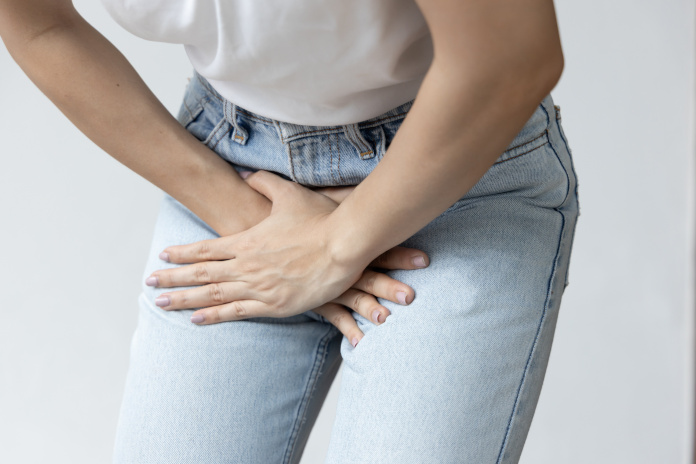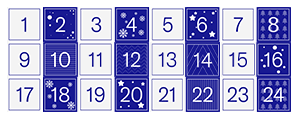What’s the best dietary supplement for prostate problems?
Over 90% of 80 year-old men suffer from an enlarged prostate, with symptoms usually appearing well before this age. Here are the best supplements for the prostate as suggested by the scientific literature.

If you’re male and have yet to be affected by benign prostatic hyperplasia (BPH), the chances are that sooner or later you will be. Over 90% of 80 year-old men suffer from an enlarged prostate, with symptoms usually appearing well before this age. So there’s much to be gained from discovering which foods and supplements are effective at delaying prostate enlargement, the symptoms of which are really troublesome … :
- The urge to urinate throughout the day increases dramatically.
- The sudden and urgent desire to urinate can strike at any time.
- Leakage of urine is inevitable.
- Getting up at least twice in the night to go to the bathroom becomes a fact of life.
- Urinary flow is weak, inconsistent and painful.
- Ejaculating becomes problematic.
The severity of these symptoms can vary according to how much the prostate has enlarged – it can expand to up to 7 times its original size and weight (around 20g!). The most effective supplements are therefore those designed to interrupt or slow down this enlargement, and in addition, improve existing symptoms.
Here, in order of relevance, are the best supplements for the prostate as suggested by the scientific literature:
Beta-sitosterol (phytosterols)
A mix of plant sterols found in Nature, beta-sitosterol is without doubt the most scientifically-supported compound for treating benign prostatic hyperplasia. Not only has beta-sitosterol been shown in almost all relevant clinical trials (1-5) to relieve each of the symptoms associated with BPH, but in addition, these benefits appear to continue long after supplementation stops (6). It may act by inhibiting the activity of 5-alpha-reductase, an enzyme responsible for converting male reproductive hormone into DHT.
The correct dose: 60mg-180mg of beta-sitosterol a day taken between meals (this increases its absorption), that’s 1-3 capsules of Beta-Sitosterol 60 mg.
Saw palmetto or Serenoa repens
Saw palmetto is a plant that contains sterols, particularly beta-sitosterols. The majority of clinical trials (7-14) have shown that supplementing with extract of saw palmetto may significantly improve urinary flow and many other measurable symptoms of prostate problems. It has two major advantages over drugs: it does not cause any side-effects and does not alter levels of PSA (Prostate Specific Antigen), a molecule secreted by the body which serves as a marker for detecting prostate cancer.
The correct dose: 320mg a day of an extract standardized to 85-95% fatty acids and sterols, ideally in the form of softgels.
Grass pollen (especially rye grass pollen)
Pollen is the male seed produced by flower stamens. Interestingly, grass cells have demonstrated benefits in relieving prostate symptoms. While the scientific literature is not quite as conclusive as it is for phytosterols, a meta-analysis has nonetheless determined that extract of rye grass pollen is effective at reducing nocturia (night-time urination) (15). Four clinical trials (16-19) have since produced similar observations, one of which even showed that 750mg/day of grass pollen extract could slow down the progress of BPH.
The correct dose: 800-1000mg a day of pollen extract, divided into three doses taken with each meal, for a period of one month, followed by a lower dose over subsequent months.
Pygeum Bark (African plum tree)
Pygeum bark is a natural compound used for thousands of years in traditional African medicine for treating a wide range of urinary problems. And once again, science seems to support this empirically-validated use: according to around 20 clinical trials, some of which were albeit of arguable methodological quality, it may help reduce frequency of urination, volume of residual urine and night-time waking to urinate. It is the triterpenes in pygeum bark which appear to be responsible for these benefits: they reduce inflammation in the prostate and may inhibit the growth factors that cause the prostate to enlarge (20-21).
The correct dose: 50-100mg a day of an extract standardized to 14% triterpenes, in one or several doses.
To varying degrees, and under certain conditions, prostate benefits have also been demonstrated for the following : DIM, vitamin E, selenium (selenium deficiency is associated with an increased risk of prostate cancer), pumpkin seeds, and nettle root (which is recognized by the WHO and ESCOP for its ability to relieve urination problems). As well as being able to slow down the process, these supplements may be effective enough to avoid the need for surgery (22). They do not impair erectile function (one of the most common criticisms of drugs) and are normally effective within six weeks of starting supplementation (as opposed to 3-6 months for their drug counterparts).
While these substances are often taken together, they are seldom combined in a single formulation that delivers the optimal strength for each ingredient. Prosta Natural Formula is one of the rare exceptions, containing as it does all the compounds mentioned in this summary.
References
- Wilt TJ, MacDonald R, Ishani A. Beta-sitosterol for the treatment of benign prostatic hyperplasia: a systematic review. BJU Int. 1999;83:976-983.
- Klippel KF, Hiltl DM, Schipp B. A multicentric, placebo-controlled, double-blind clinical trial of beta-sitosterol (phytosterol) for the treatment of benign prostatic hyperplasia. German BPH-Phyto Study group. Br J Urol. 1997;80:427-432.
- Kadow C, Abrams PH. A double-blind trial of the effect of beta-sitosteryl glucoside (WA184) in the treatment of benign prostatic hyperplasia. Eur Urol. 1986;12:187-189.
- Berges RR, Windeler J, Trampisch HJ, et al. Randomised, placebo-controlled, double-blind clinical trial of beta-sitosterol in patients with benign prostatic hyperplasia. Beta-sitosterol Study Group. Lancet. 1995;345:1529-1532.
- Klippel KF, Hiltl DM, Schipp B. A multicentric, placebo-controlled, double-blind clinical trial of beta-sitosterol (phytosterol) for the treatment of benign prostatic hyperplasia. German BPH-Phyto Study group. Br J Urol. 1997;80:427-432.
- Berges RR, Kassen A, Senge T. Treatment of symptomatic benign prostatic hyperplasia with beta-sitosterol: an 18-month follow-up. BJU Int. 2000 May;85(7):842-6.
- Mattei FM, Capone M, Acconcia A. Serenoa repens extract in the medical treatment of benign prostatic hypertrophy [in Italian]. Urologia. 1988;55:547-552.
- Champault G, Patel JC, Bonnard AM. A double-blind trial of an extract of the plant Serenoa repens in benign prostatic hyperplasia. Br J Clin Pharmacol. 1984;18:461-462.
- Tasca A, Barulli M, Cavazzana A, et al. Treatment of obstructive symptomology caused by prostatic adenoma using an extract of Serenoa repens. Double-blind clinical study vs. placebo [in Italian; English abstract]. Minerva Urol Nefrol. 1985;37:87-91.
- Boccafoschi C, Annoscia S. Comparison of Serenoa repens extract with placebo by controlled clinical trial in patients with prostatic adenomatosis [in Italian]. Urologia. 1983;50:1257-1268.
- Smith HR, Memon A, Smart CJ, et al. The value of Perm. in benign prostatic hypertrophy. Br J Urol. 1986;58:36-40.
- Willetts KE, Clements MS, Champion S, et al. Serenoa repens extract for benign prostate hyperplasia: a randomized controlled trial. BJU Int. 2003;92:267-270.
- Bent S, Kane C, Shinohara K, et al. Saw Palmetto for Benign Prostatic Hyperplasia. N Engl J Med. 2006;354:557-66.
- Wilt T, Mac Donald R, et al. Cernilton for benign prostatic hyperplasia.Cochrane Database Syst Rev. 2000;(2):CD001042.
- [Use of cernilton in the therapy of prostatic adenoma and chronic prostatitis] Shaplygin LV, Sivakov AA. Urologiia. 2007 May-Jun;(3):35-7, 39. Russian.
- [Cernilton in the treatment of prostatic adenoma and chronic prostatitis] Aslamazov EG, Akhvlediani ND, et al. Urologiia. 2007 Jan-Feb;(1):52, 54-6. Russian.
- [A comparative study on different doses of cernilton for preventing the clinical progression of benign prostatic hyperplasia] Xu J, Qian WQ, Song JD. Zhonghua Nan Ke Xue. 2008 Jun;14(6):533-7. Chinese.
- [Comparison of different drugs on the treatment of benign prostate hyperplasia] Li NC, Wu SL, et al. Zhonghua Wai Ke Za Zhi. 2007 Jul 15;45(14):947-50. Chinese.
- Andro MC, Riffaud JP. Pygeum africanum extract for the treatment of patients with benign prostatic hyperplasia: a review of 25 years of published experience. Curr Ther Res. 1995;56:796-817.
- Yablonsky F, Nicolas V, Riffaud JP, et al. Antiproliferative effect of Pygeum africanum extract on rat prostatic fibroblasts. J Urol. 1997;157:2381-2387.
Keywords
4 Hours
Reputable companysearch and the number of…
The research and the number of selection of products.
NAKHJAVAN Shervin
13 Days
The Anti Aromatase is a great product
The Anti Aromatase is a great product. You just need to have constant inventory. Recently this product has been out of stock.
GEORGE Verne
14 Days
Great help on chat
Great help on chat. Knowledgeable and friendly.
Jason Argos
18 Days
Customer service was fast and friendly.
Customer service helped to stop the transaction process of the subscription. I appreciated that.
Greenie
18 Days
I order here due to the high quality of…
I order here due to the high quality of the products and the quick delivery of items - thank you
Barbara J
19 Days
SuperSmart's Eye Pressure supplements: highly recommended!
I purchase SuperSmart's Eye Pressure supplements regularly for over 5 years, and gotta say they are truly a wonderful product for my Glaucoma. Highly recommended if you have eye pain from your Glaucoma.
D. Martinez
24 Days
Quick service
Quick service
MONELL
25 Days
Speedy service.
Speedy service.
ROSENTHAL Marvin
28 Days
Clear website- Efficient
Clear website. Excellent search engine and fast delivery!
Mohamad Hussein
31 Days
They have great products.
They have great products.
Vickie
31 Days
Great Shipping Time!
You Have A Great Shipping Time! Praise The Lord!
DMHoge
33 Days
Doctor Recommended!
Good pricing, very good availability, doctor recommended (couldn't find what I needed anywhere else), and it took only a week to arrive (which I can't complain about).
Al
34 Days
Great product and fast shipping
Great product and fast shipping
Marie
35 Days
New customer 1
I got my order fast and on time.
SA
35 Days
Great Service
Fast, good communication, as promised.
Juli





